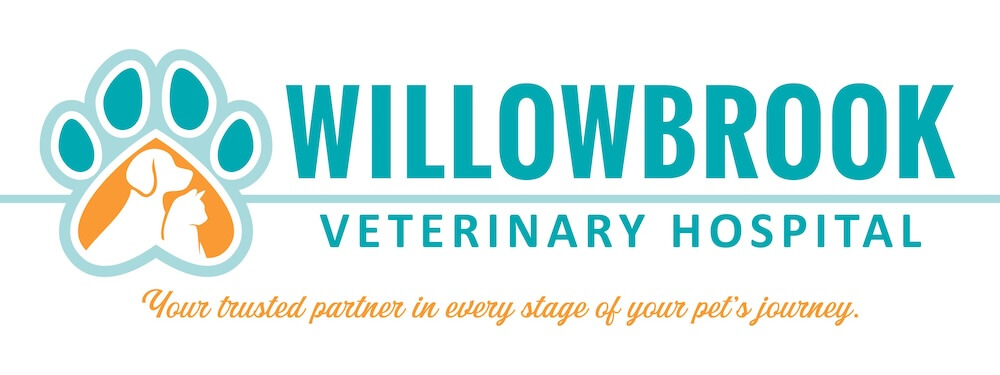Dog Surgery at Willowbrook
Safe, Compassionate Surgical Care for Your Dog
Hearing that your dog might need surgery can be overwhelming—but at Willowbrook Veterinary Hospital, we’re here to guide you every step of the way. Whether it’s a routine spay or neuter or a more complex soft tissue or orthopedic procedure, our experienced team prioritizes safety, comfort, and recovery for every patient.
How Do I Know if My Dog Needs Surgery?
Your veterinarian may recommend surgery to treat an injury, remove a mass, address chronic pain, or prevent future health issues. Signs your dog may need surgical care include:
- Lumps or growths
- Difficulty walking or limping
- Dental pain or infections
- Reproductive health needs (spay/neuter)
- Emergency situations like bloat or foreign object ingestion
We’ll always discuss your options, explain the risks and benefits, and help you make the best decision for your dog’s health.
Common Surgeries We Perform
At Willowbrook, we regularly perform:
- Spay and neuter procedures
- Mass removals and biopsies
- Bladder stone removal
- Gastrointestinal foreign body surgery
- Cherry eye repair and enucleation
- Dental surgery and extractions
- Wound and laceration repairs
We also offer advanced orthopedic procedures on-site through our partnership with MOVES Mobile Veterinary Specialists for surgeries like TPLO (knee stabilization), fracture repair, and more.
Do Dog Surgeries Have a High Success Rate?
Yes - when performed by trained veterinary professionals in a well-equipped setting, most dog surgeries have excellent outcomes. Success also depends on early diagnosis, surgical precision, and proper aftercare.
Will My Dog Need to See a Specialist?
Some advanced or complex surgeries (especially orthopedic or internal medicine-related) may require a specialist. Thanks to our partnership with MOVES, many of these surgeries can be performed right here in our hospital, avoiding the need to travel to a referral center.
Are There Risks to Dog Surgery?
Every surgery comes with some risk, especially with anesthesia or in older or medically fragile dogs. That’s why we perform pre-anesthetic lab work, full physical exams, and tailor anesthetic plans to each individual pet to minimize those risks.
Preparing Your Dog for Surgery
We’ll give you clear instructions before your dog’s procedure. These may include:
- Withholding food (usually 8–12 hours prior)
- Adjusting medications
- The use of pre-visit pharmaceuticals for high stress pets
- Keeping your dog calm and secure the night before
Let us know if your dog is anxious—we can help with calming options.
Will My Dog Need Lab Work Before Surgery?
Yes. We use our in-house IDEXX laboratory to perform pre-anesthetic bloodwork. This helps us check for signs of infection, anemia, organ function, and any hidden conditions that could affect anesthesia or healing.
What Happens on the Day of Surgery?
When you arrive, we’ll:
- Confirm your consent and answer questions
- Perform a final exam and review your pet’s lab results
- Place an IV catheter and administer pre-surgical medications
- Monitor your dog closely throughout the procedure and during recovery with advanced anesthetic monitoring
We’ll call you as soon as your dog is in recovery and set a pick-up time.
How Long Does Surgery Take?
Surgery times vary depending on the procedure. Most routine surgeries (like spays, neuters, and mass removals) take between 30 minutes and 2 hours. More complex surgeries may take longer, and we’ll keep you informed every step of the way.
Is Anesthesia Safe for Dogs?
Modern veterinary anesthesia is very safe—especially with custom protocols, IV fluids, and continuous monitoring of heart rate, blood pressure, oxygen levels, and temperature. We use the safest options available for your dog’s size, breed, age, and health.
Will My Dog Be in Pain After Surgery?
We take pain control seriously. Your dog will receive:
- Pre-operative pain medications
- Local anesthetics when appropriate
- Post-op pain management tailored to their needs
- Pain relief may continue at home with oral medications or laser therapy.
What’s Post-Surgical Care Like?
After surgery, your dog may feel groggy but should rest comfortably. We’ll give you:
- Medications and instructions
- An e-collar or alternative to prevent licking
- Feeding and activity restrictions
- A direct number to call if concerns arise
- Rest, limited activity, and follow-up care are key to recovery.
How Long Does Recovery Take?
Recovery depends on the type of surgery.
- Routine surgeries: 10–14 days
- Orthopedic or internal surgeries: 4–8 weeks or longer
We’ll schedule rechecks to monitor healing and adjust recovery plans as needed.
Signs of Complications to Watch For
Call us if you notice:
- Swelling, redness, or discharge at the incision
- Lethargy that persists beyond 24–48 hours
- Loss of appetite or vomiting
- Difficulty walking or breathing
- Excessive licking or chewing of the incision site
Early intervention leads to better outcomes—don’t hesitate to reach out.
Will My Dog Need Special Food or Medications?
In most cases, your dog will go home with:
- Prescription pain medications
- Anti-inflammatory medications
- Antibiotics (if needed)
We may recommend a bland diet or recovery diet if their appetite is low after anesthesia.
How Do I Prevent My Dog from Licking the Incision?
Licking can delay healing and cause infection. We recommend:
- E-collars (cones) or inflatable collars
- Recovery suits (which we carry)
- Keep the incision clean and dry, and discourage licking or rough play during recovery.
When Should We Come Back for a Recheck?
We typically recommend a follow-up exam 7–14 days post-surgery to:
- Remove sutures if necessary
- Check the incision site
- Monitor healing and adjust medications
We’ll schedule this before you leave on surgery day.
Surgery doesn’t have to be scary—we’re here to support you and your dog with expert care, clear communication, and personalized recovery plans.
If you have questions, we would love to answer them for you. Please give us a call at the office at (503) 968-2911, or you can email us at [email protected]. Our staff would love to talk with you!
